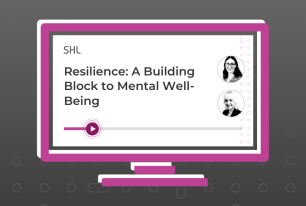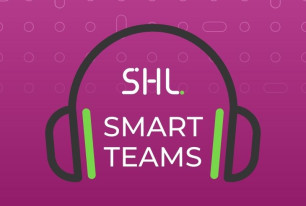15 Ways to Keep Your Mental Health in Check In a Turbulent World
This holiday season is the time to evaluate our well-being and recharge for the new year. Read our 15 tips to keep your mental health in check.
Share
What a strange couple of years it has been for us all. We have experienced life in a pandemic and now most of us are experiencing a post-pandemic life and all that it entails—the underlying fear of another pandemic. Throw in the financial cost of the pandemic, the war in Ukraine and the fear that it could escalate, the ever-spiraling cost of living, and there is no major surprise that sometimes as human beings we might feel overwhelmed (I for one, have had my struggles with all of it, combined with a great big dash of family challenges thrown into the melting pot)!
Our lives seem to have “overnight” become more uncertain, unpredictable, and challenging and in addition, the pandemic has also changed our ways of working. Having to adjust to fully home-based working was a challenge for many and then once we had finally gotten used to it, it was time to go back to the office with a more balanced approach to our working lives and a better work-life balance. However, it has still required significant adjustments to be made to our personal and family lives, our working patterns, and the demands upon us as individuals are sometimes intense.
Work and home life boundaries have blurred, in some ways for the better (seeing more of our families, being able to take the kids to school, being there to make sure they are home again, keeping on top of the washing, nipping out to do some exercise during the day) and in other ways for the worse. The working day is no longer necessarily defined by the arrival and exit from the office and there is a danger of slipping into a longer working day and with that, higher expectations from others that we are available outside of the boundaries of the former “working day”.
The pandemic had an inevitable impact on many people’s mental health and inevitably that has not been immediately rectified just because the pandemic has been declared to be at an end in many countries, and anxieties in many cases remain high. However, it is probably fair to say, we are generally all more aware of our mental health (I can honestly say that I am!) and actually, there is a strong argument to say that we should continue to stay alert to our personal well-being and try to maintain an element of control and boundaries around our working life. So, what can we do to sit in
the driving seat of our working lives, put the brakes on where necessary, and keep our mental health in check?
How to keep your mental health in check
- Set your own boundaries and agenda and be strong about maintaining them – put focus times and lunch breaks in your calendar, be strict about the end of your working day, do not spend the evening checking emails. Make it clear you are not available 24/7. If you are a manager of people, encourage your team to adopt these sensible working practices.
- Feel comfortable pushing back – just because something is urgent for one person does not necessarily mean it needs to be done there and then. Clarify when the work needs to be done and communicate when you will be able to respond within the constraints of your current workload. It is not a “no”, it is just a “not right now”.
- Get back to the office – if you are feeling anxious about getting back to the office, in most cases the best thing to do is get back to the office! Just try one day a week and build up. The longer you leave this the harder it is. Being around people and separating home and work, if possible, is a great lift to the spirits.
- Avoid comparison - try not to compare yourself to others—do what is right for you and what makes you happy. What works for one person is not necessarily the right approach to work and to achieve your own success. Be confident in your own decision making.
- Bouncebackability – Resilience is key to equilibrium in these times, if you find yourself struggling to accept feedback and taking lots of things personally, try to work out the why. Speak to your manager, a friend, and/ or a coach to help you build on these skills.
- Keep active – but try to balance challenging pieces of work with activities you are more comfortable with in order to recharge your batteries. If we are consistently working on stressful pieces of work then this can have a negative impact on your anxiety and effectiveness.
The working day is no longer necessarily defined by the arrival and exit from the office and there is a danger of slipping into a longer working day.
- Put work into perspective - remind yourself that despite being important it is just a job when worries threaten to overwhelm you, ask yourself “what is the worst that can happen?”. Try to compartmentalize problems and if it helps, talk to a manager or colleague to help you get a perspective.
- Physical exercise was one of the key coping mechanisms during the pandemic and along with a good self-care routine—good diet, sleep, relaxation—it makes a huge difference to our sense of well-being and perspective.
- Book in social catchups with colleagues especially if you are a fully remote worker – lack of human contact can lead to isolation, internal chatter, and sometimes anxiety. A 10-minute chat with a colleague can be a mood changer. Laughter is a great medicine enjoy each other.
- Be kinder to yourself and others - talk to people around you and ask how they are and what you can do to help. As a manager offer feedback and praise and build a strong team culture through regular meetings and collaboration, allowing team members to support each other. Give yourself a break sometimes too, sometimes you are more productive than others depending on what’s going on in your life and that is okay, it balances out!
- Have regular 1-1’s – with your manager to enable open and honest dialogue. Try not to skip meetings because you are too busy and as a manager be aware if your team member is regularly canceling meetings. Having an ongoing dialogue makes it easier to have an open discussion when something is wrong.
- Utilize resources on offer such as Employee Assistance Programmes and Counselling if you feel you require additional help—they are always confidential.
- Talk to someone - if you have consistently been feeling unwell for some time, talk to someone, your HR representative, your manager, your EAP helpline—do not keep it to yourself, talking to someone opens a path to support.
- Recruit well - more for managers but building strong teams around us that we can trust through great hiring practices makes for better team collaboration and trust.
- Building a positive, inclusive culture where individuals can be themselves and bring their “whole selves” to work is another important factor for employers to consider but we all have responsibilities as individuals to play a part in this…. being open-minded, not being afraid to ask questions, being kind, the list is endless.
Just making a small change in the way we approach our working lives can make a difference and help to reduce our anxieties and look after our mental health. I have adopted a few of these approaches over time and it has certainly made a difference to my own well-being. And as a final note, one of my wider team members made a big difference to my day just yesterday by asking one simple question “are you ok?” as I had been a little quiet and distracted. I was touched by the gesture and interest in my well-being. It is the small things that can make a difference.
For further help and support contact:
Mind.
Keeping your mental health in check is a form of self-care in this new world of work. Check out our library for more resources on mental health and well-being.









